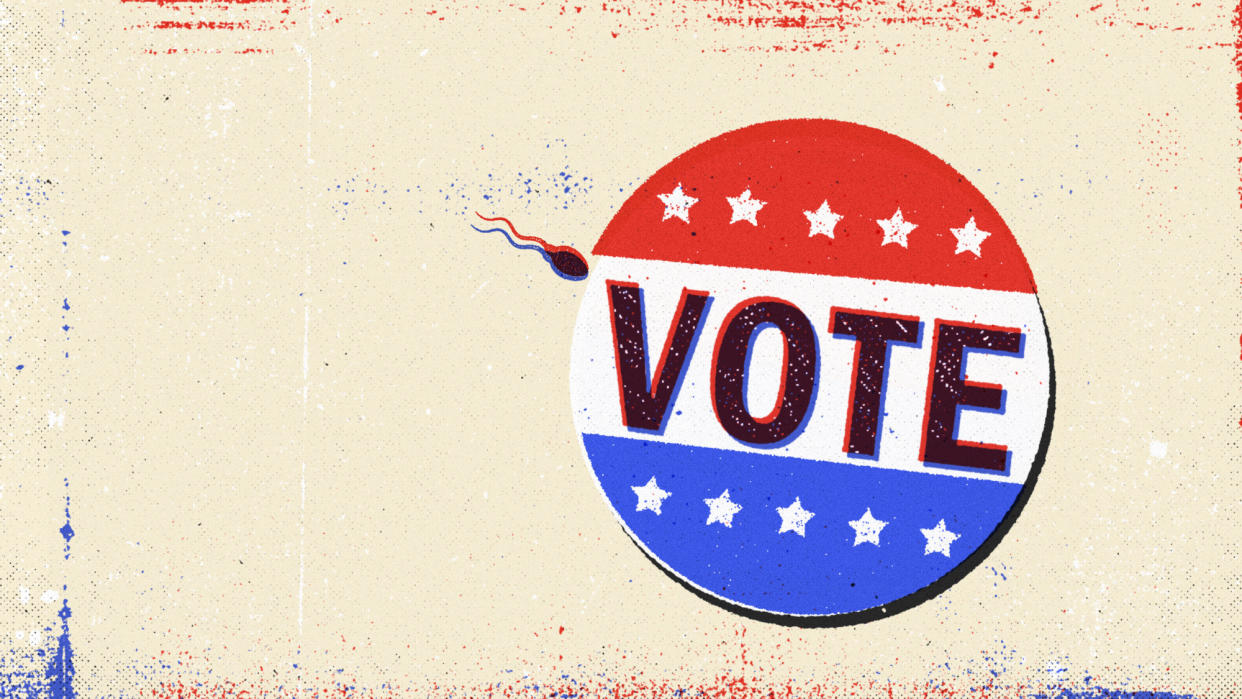Will abortion decide the 2024 elections?

The House Majority PAC has started a $100 million fund focused on abortion rights in the party's latest effort to win votes as Republicans hammer issues like the economy and immigration, according to The Wall Street Journal. The PAC, which supports Democrats' push to take back the House, told donors the Reproductive Freedom Accountability Fund would be used for advertising and get-out-the-vote campaigns in swing districts and competitive House races.
Democrats are betting their advocacy for reproductive rights, which Americans support in polls, will help them erase the GOP's razor-thin majority in the House and help President Joe Biden overcome a polling slump that puts him behind Donald Trump. As president, the Republican challenger bolstered the conservative Supreme Court majority that overturned the abortion-rights protections of Roe v. Wade. Trump, like other Republicans, backs limits on abortion. Could this be the issue that decides which party fares better in November?
Abortion tips the scales to Democrats
Abortion has "played to Democrats' considerable advantage" ever since the Supreme Court overturned Roe v. Wade nearly two years ago, said Mark Z. Barabak in the Los Angeles Times. After the sudden loss of a "50-year-old constitutional right to abortion," it "helped the party avoid a widely predicted wipeout in the 2022 midterm elections" and forced Trump and other Republicans to twist themselves into knots trying to satisfy conservatives without "alienating" the pro-abortion rights majority. The issue could motivate voters who are not crazy about Biden to vote for the incumbent anyway. That "could make all the difference" in a close race.
"Anger over Republican-backed abortion bans may give Democrats an edge in November," said Mara Gay in The New York Times. That is especially true in states like Florida, where a proposed state constitutional amendment to "establish a right to abortion before viability" could attract people angry about post-Roe restrictions to the polls. But "righteous anger and grief over the loss of reproductive freedom in Florida" might "not be enough to revive the state's Democratic Party" or keep Trump from winning Florida's electoral votes. Political analysts say many Republicans might vote for the constitutional amendment "but reject Democrats," including Biden. It will take more than one issue to "build a lasting political coalition" in places like Florida where Republicans have gained the upper hand.
The economy and inflation could matter more
Georgia's state Supreme Court election provided the latest indication abortion "may not be the silver bullet" Democrats think it is, said Henry Olsen at National Review. The party thought former Democratic congressman John Barrow, who "argued that the state constitution guaranteed a right to abortion," had a good chance to unseat Andrew Pinson, a state Supreme Court justice appointed by Republican Gov. Brian Kemp. But Pinson demolished Barrow by 10 percentage points, a bigger margin than in Stacey Abrams' loss to Kemp in 2022. "This is not a sign that support for abortion rights will swing red voters over to Team Blue." Polls have shown "inflation, the economy and immigration remain of greater import to voters, especially independent voters."
It still is hard to say how the abortion rights issue will play out on a national scale this November, said the Newsday editorial board. Since the Supreme Court's 2022 decision in Dobbs v. Jackson, which "upheld a Mississippi law banning most abortions after 15 weeks of pregnancy," changed the abortion landscape, "the procedure has been banned in some states while access to it expanded in others. The tumultuous five-decade legal and political struggle over the government's involvement in the outcome of a woman's pregnancy continues unabated." Trump, who picked three of the justices in the high court's 6-3 conservative majority that overturned Roe, took "credit for the great reversal" but has had trouble "finding a popular footing on the issue in his bid for a second term." Two years after the Supreme Court told the nation, "'You decide,' the question is being called for a vote."
